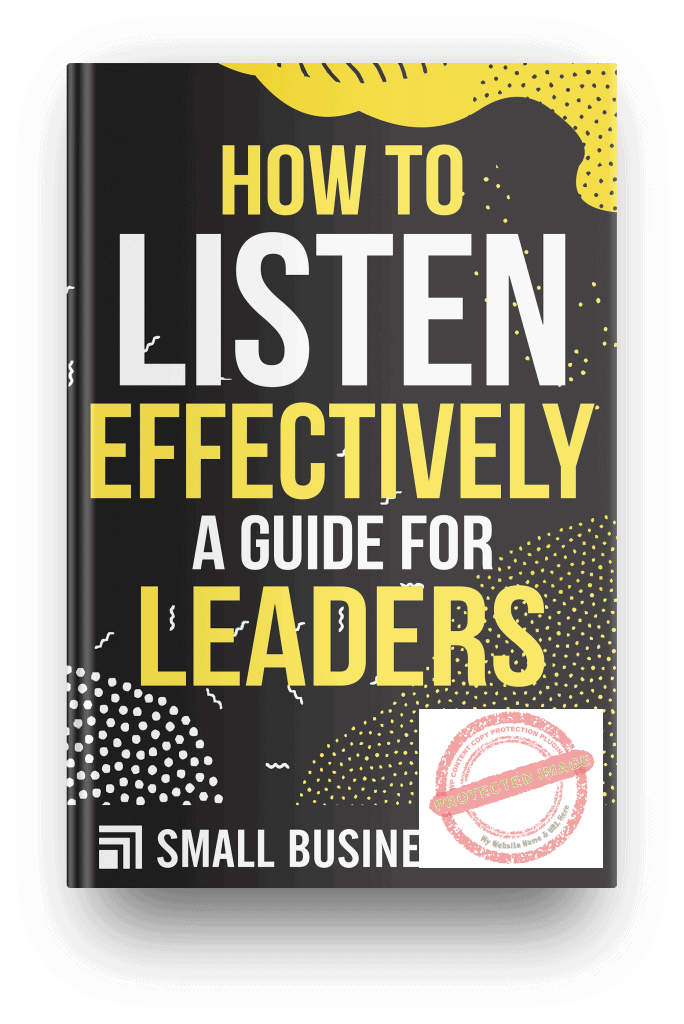Do you often feel like you’re being pulled in so many directions as a business owner? Well, this is not uncommon.
As a business owner, supervisor, or manager, you are tasked with a wide range of responsibilities.
So in this article, ‘How to Listen Effectively – A Guide for Leaders’, you will learn crucial tips to help you in your role.
While it may look as if the last thing you want to do is to spend precious time listening to your team members, this may exactly be what you have to do to be an effective leader.
You have to understand the importance of listening.
Interviews point out that a big percentage of employees feel that their bosses don’t have the time or the inclination to listen to them.
Recent employee polls indicate that more than 90% of workers feel that communication issues figure as one of the top 3 problems in the workplace.
It is plain to see that many employees feel that their bosses are not listening enough.
If you want to become a truly effective leader, you need to be guided into knowing how to listen effectively.
Importance Of Listening In Leadership
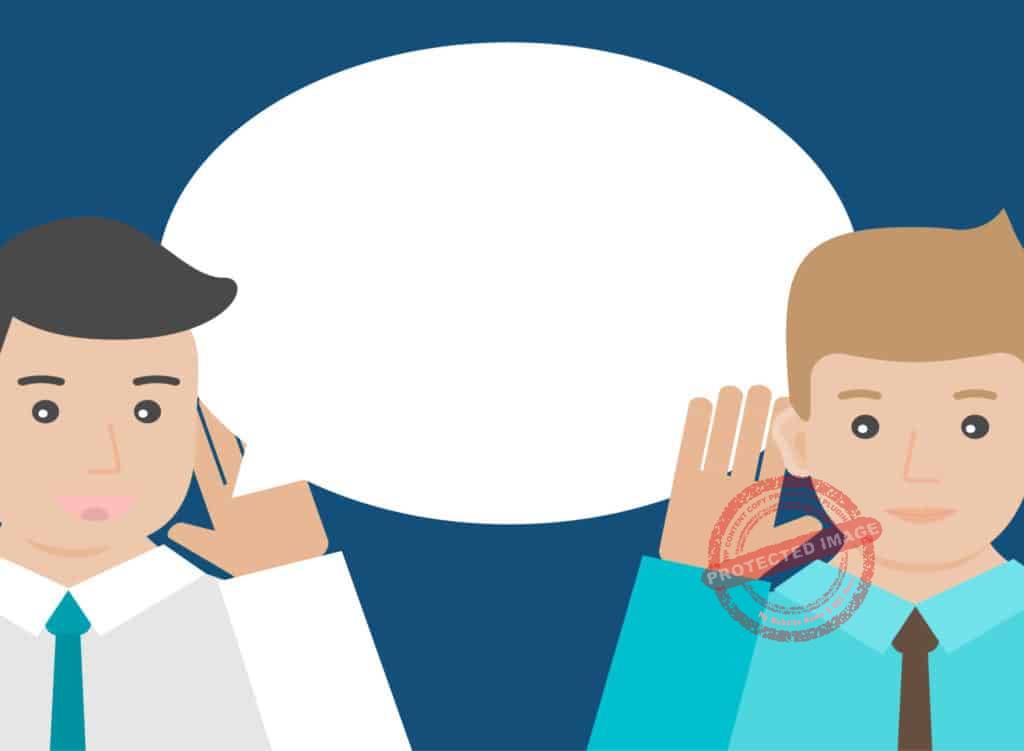
Studies show that active listening skills are essential for becoming an effective leader.
Developing listening skills helps you connect with your employees.
It increases your capacity for effective leadership exponentially.
Listening in communication is one of the critical abilities that differentiates a great leader from run-of-the-mill ones.
In communication, it allows you to enjoy a wide range of significant benefits.
As a leader, when you are guided to know how to listen effectively, you;
- Teach people the value of effective communication.
- Help promote effective communication in your organization.
- Boost the morale of your team members.
- Help bring down employee dissatisfaction and turnover.
- Decrease the possibility of interpersonal conflict and/or help resolve it.
- Encourage the people within your organization to express their opinions and share their perspectives.
- Promote the sharing of ideas, views, and possibilities.

When you know how to be an effective listener, you’re able to establish effective communication with your team members.
Thereby laying down a strong foundation for trust.
Your people will feel that you are interested in what they have to say and that you have their real interests at heart.
As a result, they are likely to be open with you.
They give honest feedback, share their ideas and feel more engaged in the team.
When a person feels that you are willing to listen to his concerns, he is likely to feel less defensive.
He becomes more open to looking for mutually-acceptable solutions and to resolving whatever conflicts that arise.
When you encourage your team to speak openly and regularly about problems, and you listen effectively, you are able to guide them as a team leader.
Thereby diffusing conflict.
Your workplace becomes more transparent.
Active listening in a leader tends to encourage positive interactions, greater productivity, an innovative atmosphere, loyalty, and higher profitability.
It is clear that you have to make developing listening skills a priority.
Active Listening Skills
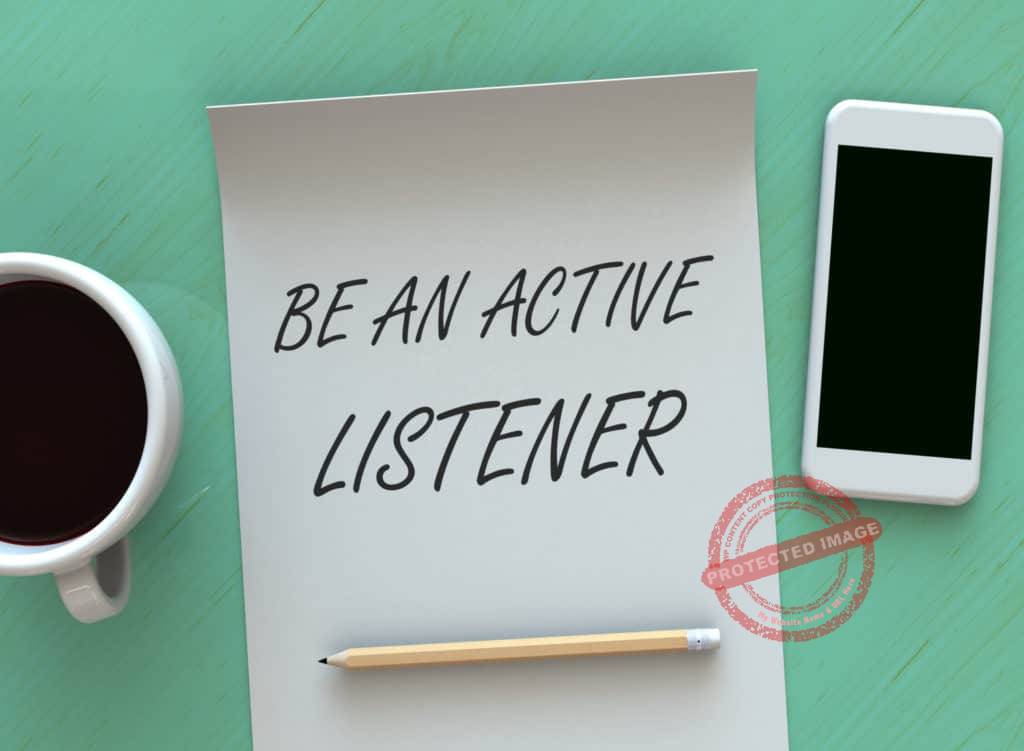
You are able to understand what the other person is trying to communicate when you effectively and actively listen thereby helping you to be a good leader and guide.
All your senses are centered on the person as you take the time and effort to hear him out and understand him.
You don’t focus on your thoughts or on what you plan to say as a retort.
When the other person feels that you’re sincere in your effort to understand his point of view, he is likely to trust and respect you.
Resist the temptation to jump in with your own perspective, it will help build a stronger relationship with this person.
You don’t have to agree with what he says.
The mere fact that you respect him enough to hear him out and effectively listen to him will help build mutual respect and understanding as well as guide you as a leader.
Barriers To Listening In Leadership

Improving active listening skills is not as easy as it sounds.
There is a variety of things which may hamper your efforts to listen with understanding and compassion.
Prejudging
People have the tendency to prejudge others.
They tend to make conclusions about other people based on how they look, dress, speak, or act.
When you allow another person’s looks, speech, background, and other traits to influence your judgment, it can be pretty hard to actively listen to what the person has to say.
Thinking About How To Respond
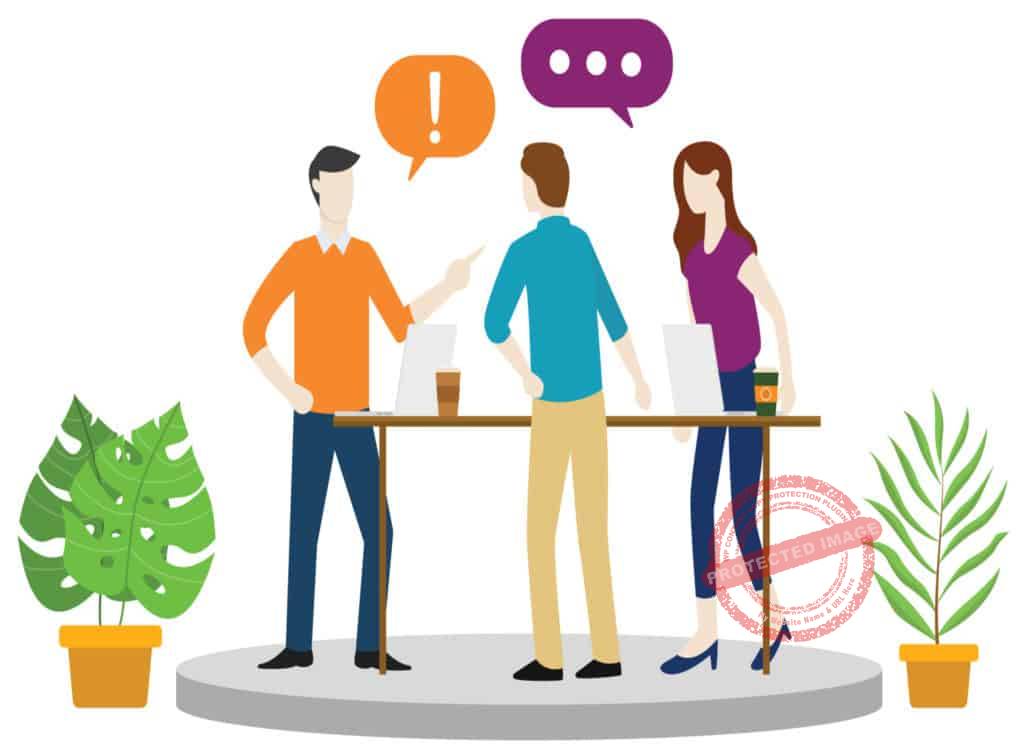
Some people do not wait for the other person to finish what he has to say.
They formulate replies in their heads even as the other person is speaking.
Such behavior keeps you from being able to listen effectively to the complete message thereby portraying you as a leader who is not able to guide his team on the right path.
Even if you want to help ‘solve’ the problem, you have to practice discipline and wait for the other person to finish.
Try to listen through so that you get the entire picture.
Being Interested Only In Facts
Studies point out that communication is not only conveyed by words.
It is also expressed by other elements like body language, facial expression, and tone of voice.
If you want to be a truly effective leader, you have to embrace active listening.
Be conscious of the feelings behind the facts.
Read the messages that body language conveys and try to pay attention to what actually drives the message.
Failing To Understand Cultural Cues

Your workplace may include people who come from different cultures.
So, you have to be aware of how culture can impact the way a person sees things.
Here, to listen actively, you have to try to understand that what the other person is saying may contain motivations or subtle meanings brought on by cultural differences.
Multitasking
Do not try to multitask if you want to actively and effectively listen to what a person is saying or else you could be seen a leader that cannot guide his team properly.
Additionally, it is not only distracting but even offensive to the other person.
It limits your ability to understand and empathize with that person.
As a leader, it is critical for you to build positive relationships.
You will fail in this if the people you work with think that checking items off your to-do list is more important to you than what they have to say.
Identify these barriers and understand how they affect your listening skills.
When you practice active listening, you strengthen your communication skills and enhance your leadership style.
How To Improve Your Listening Skills

Effective listening may not come naturally to you, but you can learn how to be an effective listener.
You can practice and harness your listening skills and become a more effective leader.
The following guidelines can provide direction on how to improve your listening skills:
Give Your Undivided Attention

If you want to give a person your undivided attention, look at him as he talks to you.
This is essential to active listening.
You can’t focus on what the other person is saying if you are looking somewhere else.
Close your laptop.
Keep your cell phone away.
Put the book down.
Put aside everything that may distract you from listening intently to what the person has to say.
When you fidget, doodle, play with your hair, keep checking the time, or pick your fingernails, you are telling the other person that you are not interested in him.
When you listen effectively to your team, it guides you to become the kind of leader they need you to be.
So, to listen actively, you must pay attention.
You should concentrate on the person you are talking with and focus your senses on him.
This way, you become engaged in the conversation in order to absorb what the person is trying to convey.
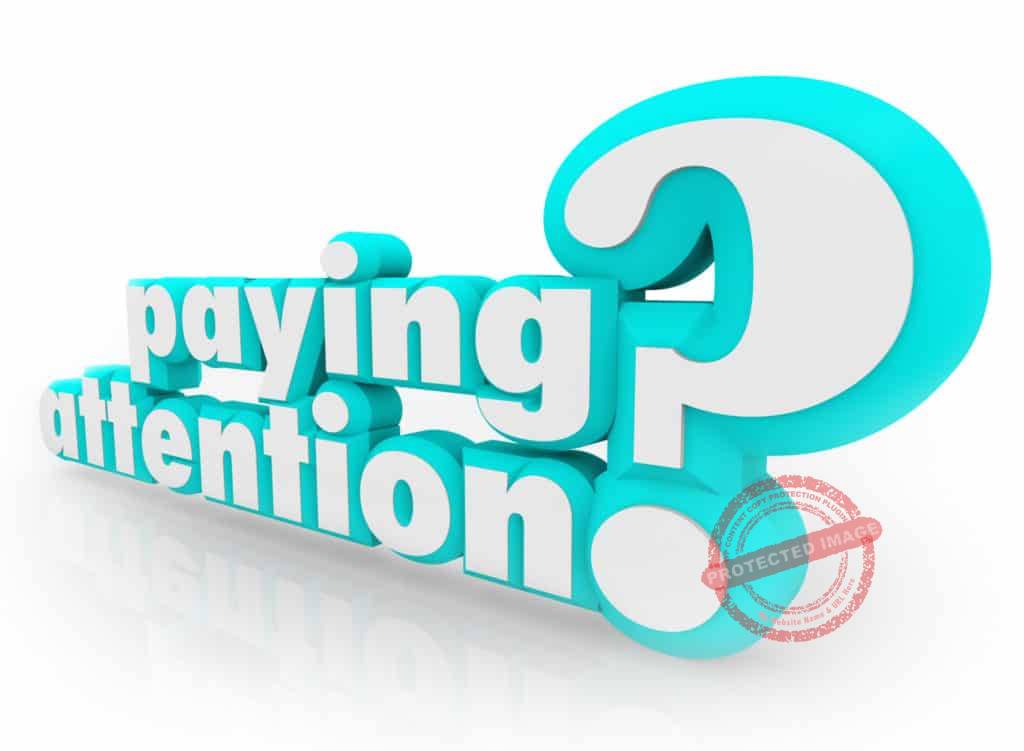
There are obvious signs that tell the other person that you are paying attention.
Maintain eye contact.
Nod, ask questions for clarification, agree by saying “yes”, and display other similar reinforcing responses.
Your subordinate may not always look at you. In certain circumstances, he may feel insecure, uncertain, shy, guilty, or afraid.
In other cases, he may be going through certain emotions that inhibit him from keeping eye contact with you.
Nonetheless, do not let these behaviors deter you. Maintain your focus on him.
Maintain The Right Posture

There are certain postures that indicate if a person is actively listening or not.
Leaning forward a bit or sideways if you are sitting down demonstrates engagement.
Slightly tilting your head or resting your chin on your palm while looking at the other person also shows interest.
Show Reflective Expressions
When you mirror the facial expressions of the person you’re talking to, you show attention. It reflects empathy.
Make Reflective Statements
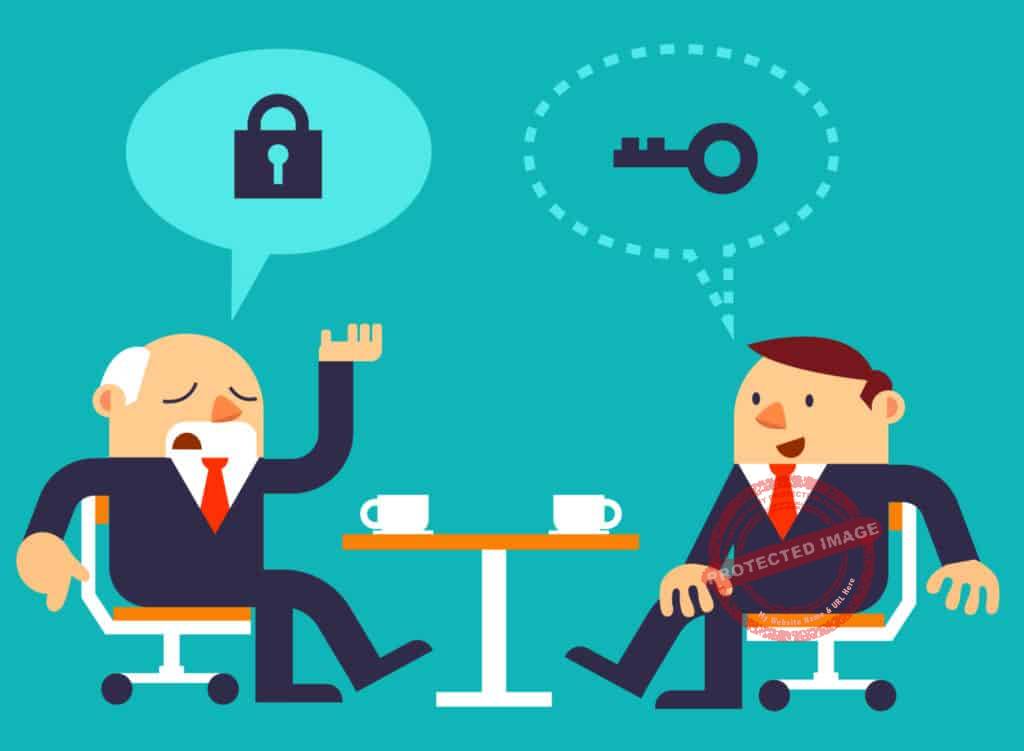
When you show the other person that you remember the things he says, it reinforces the message that you are, indeed, listening intently to him.
When you demonstrate that you remember certain details, you encourage him to continue speaking.
This way, as you listen effectively to your employee, it guides you to be the leader he needs.
Attend To The Person
Making eye contact does not mean that you have to gaze fixedly at the other person.
This may make the situation feel awkward and make the other person feel uncomfortable.
The important thing is to carry on the conversation with attention.
The dictionary defines ‘attend’ as being present, giving attention, applying or directing yourself, paying attention, or remaining ready to serve.
Screen out background noise and activity, and other mental distractions.
Do not allow yourself to become sidetracked by the other person’s speech mannerisms or accent.
Avoid Getting Distracted By Your Own Biases, Emotions, Or Thoughts

Don’t allow your own thoughts (your ‘inner dialogue’) to distract you.
Distractions don’t come only from your surroundings.
Your own thoughts can generate a silent distraction that keeps you from actively listening to the other person.
Your mind tends to continue its own inner dialogue while you try to listen to the other person. So, you need to keep it quiet so that you can focus on what the other person is saying.
Try to schedule a regular time for reflective thought and solitude.
This allows you to clear your mind.
It enables you to process your thoughts so that when you talk to other people, you are able to devote your energy and focus on their ideas.
Don’t Make Judgments

When you are listening to the other person, do so without mentally criticizing or judging what he says.
If what you hear makes you anxious, go ahead and feel anxious.
But keep yourself from saying, even to yourself, “Wow! That was a stupid thing to do!”
When you indulge in judgmental thoughts, you compromise your ability to actively listen.
Don’t Jump To Conclusions
Keep in mind that the other person is trying to express the thoughts and feelings inside him.
You won’t know what these thoughts and feelings are unless you listen intently until they are fully expressed.
Be Open-minded
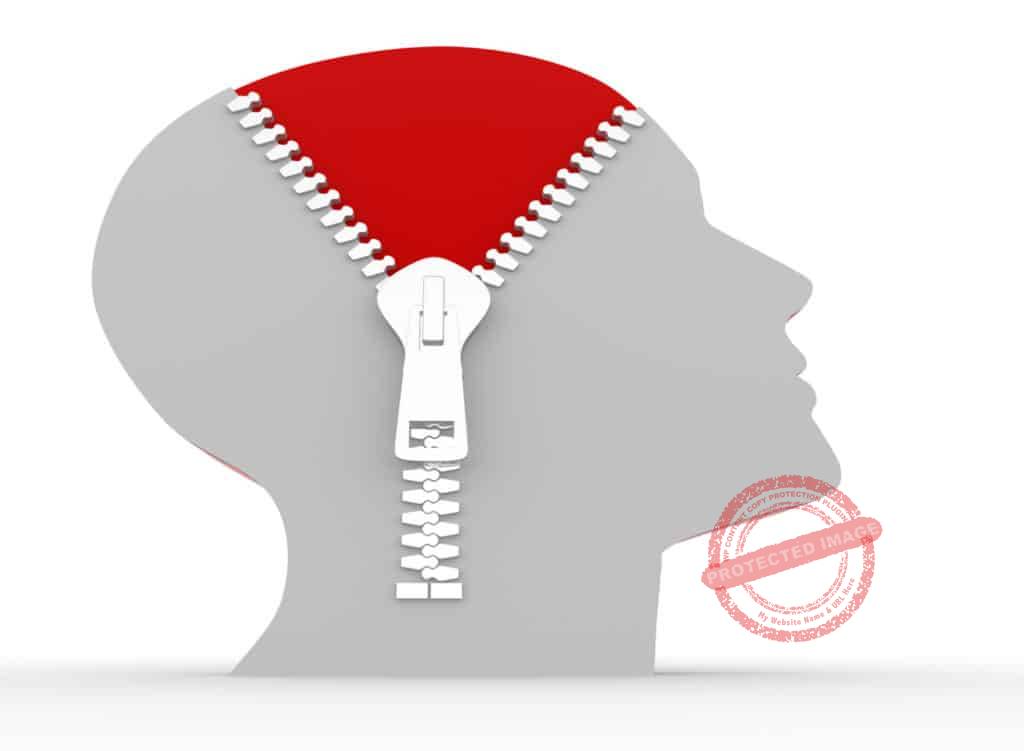
If you want to be a good leader and effectively guide to your team, you need to be flexible as well as listen actively.
You have to keep an open mind and welcome change when it is called for.
An effective leader needs to be open to constructive criticism, new ideas, differing opinions, and fresh approaches.
When you listen with an open mind, you encourage your people to express their thoughts and feelings.
Show Respect
You may think or speak at a faster rate than the person you are having a conversation with.
If you are a more agile thinker, try to adapt to the slower pace.
Don’t hurry the mental pace of the person you are talking with by finishing his sentences to speed him up.
You don’t know where his train of thought leads.
Interrupting him or ending his sentences may land you off base.
Hear him out.
Show respect.
Make An Effort To Picture What The Other Person Is Trying To Convey

Try to come up with a mental model of what the other person is saying.
Create a literal picture or an image of abstract concepts.
Try to retain keywords and significant phrases. Doing this will help your brain stay focused, especially when you are trying to carry a conversation for long stretches of time.
If you find that your thoughts are beginning to wander off, try to refocus right away.
When you are listening, keep yourself from planning how you are going to respond.
You can’t effectively listen when you are rehearsing what you are going to say next.
Focus only on what the other person is expressing.
Stop Yourself From Interrupting
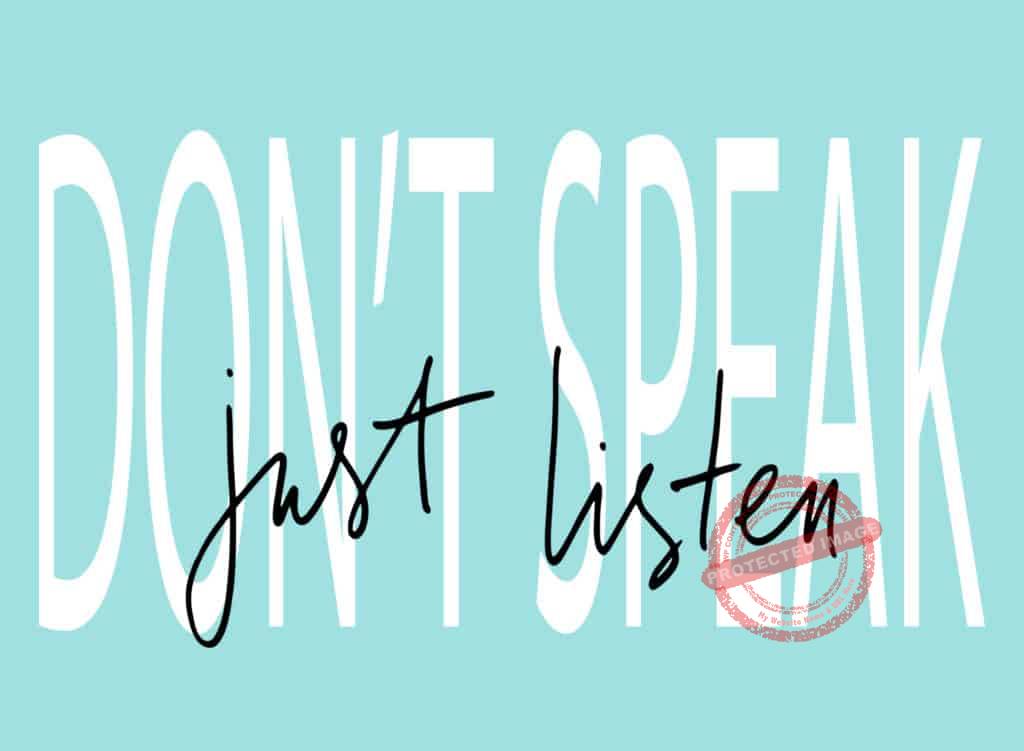
Interrupting another person sends negative messages.
It may cause the other person to feel that you think you know more than he does.
Probably also that what you have to say is more interesting, important, or correct than what he is saying.
You may be conveying the message that you are not really interested in what he has to say.
Additionally, it could suggest that you don’t really have the time to hear him out or listen to his opinion.
When the person is talking about a problem, don’t rush in with your solution or advice. He may be trying to figure out a solution on his own and simply needs you to listen to him.
Hear him out.
If you think that your advice can help him, get his permission by asking, “Would you like to discuss ideas with me?”
Here, you have created an avenue for him to see you as a true leader and guide for the fact that you always listen effectively.
Ask Questions At The Right Time
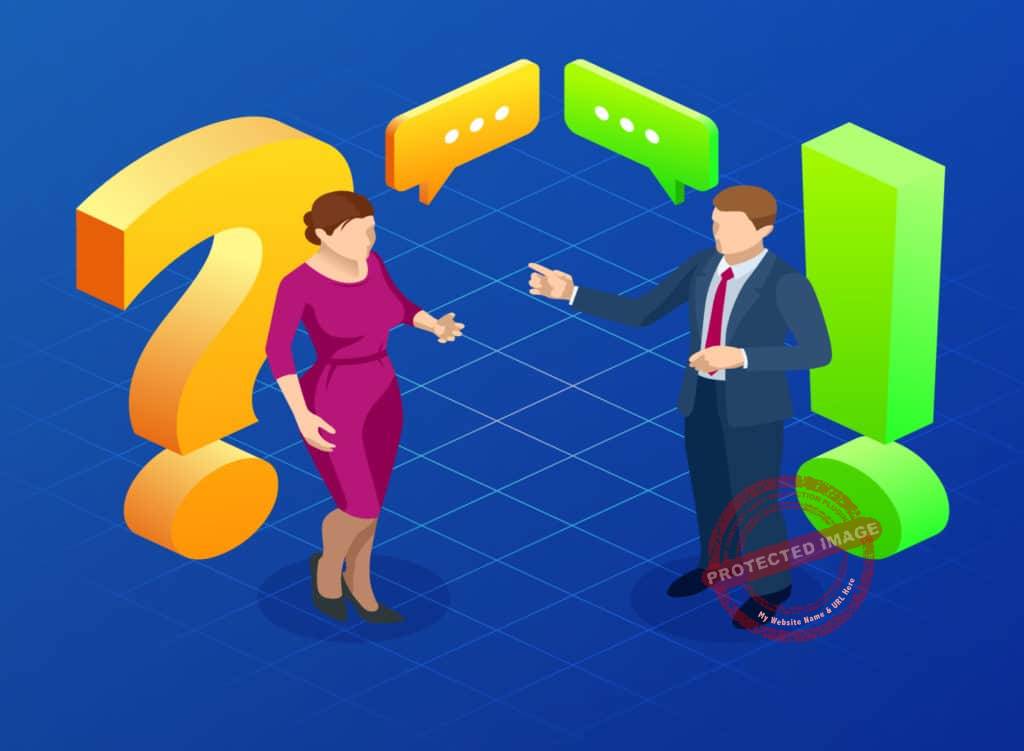
You show that you are being attentive when you ask relevant questions or make statements intended to clarify or to build on what the other person has said.
Ask clarifying questions – but only when the speaker takes a pause.
Do not interrupt rudely.
When there is something you don’t understand, wait for the speaker to pause and then say something like, “I hope you don’t mind.
But can you explain what you just said a little bit more?”
Do Not Steer The Conversation To Where You Want It To Go
Try not to ask questions or make statements that lead the conversation in another direction.
You may lead the speaker off-track and keep him from expressing what he really wants to discuss with you.
Summarize What The Other Person Has Said
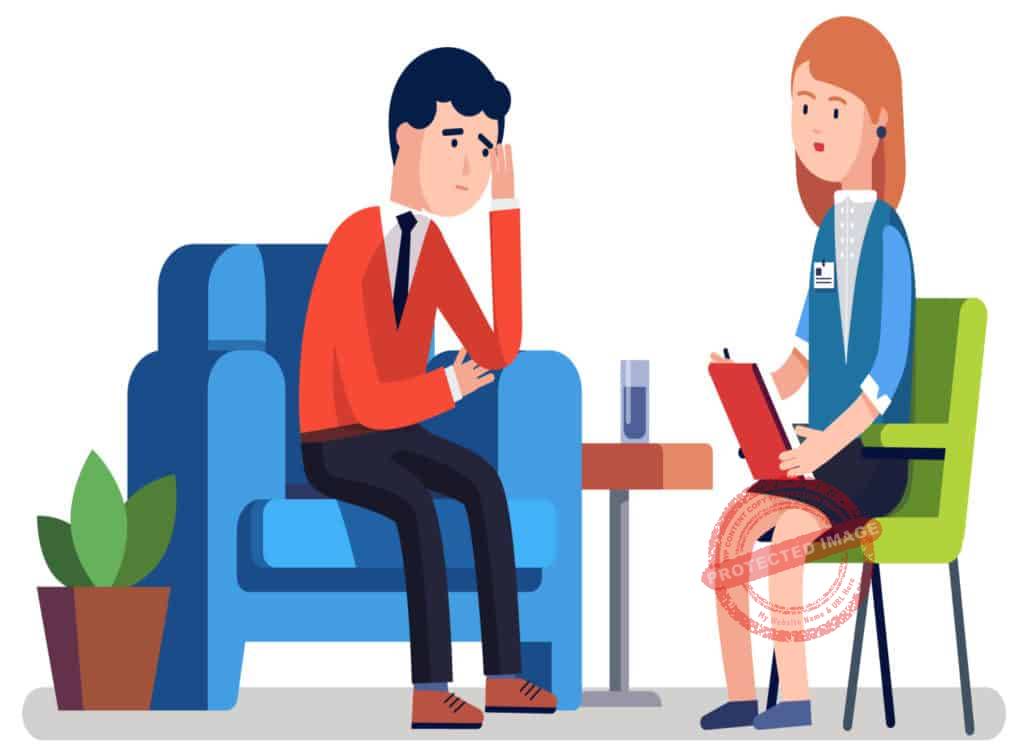
Giving a summary of the message gives you the opportunity to check if you understand what has been said.
Take the main points and reiterate them as clearly and logically as you can.
This gives the other person the chance to make corrections if necessary.
It also shows him that you are listening and absorbing what he is saying.
Empathize With The Speaker
Empathy is the true spirit of active listening.
You empathize with your employee when you effectively listen thereby allowing you to be a true leader and guide.
Empathy is the ability to feel what the speaker feels – be it sadness, glee, anger, joy, or insecurity.
Also, it is the ability to get it across to him (through your words, gestures, or facial expressions) that you understand what he is going through.
It is not easy to empathize with another person.
It requires focus and energy.
But when you are able to empathize, you pave the way for true communication and understanding to take place.
Give Feedback

Show the other person that you recognize where he is coming from.
Reflect what he feels.
“You must be so excited!”.
“Oh dear, that is so sad.”
“What a terrible thing to happen!”
You can also paraphrase what he says, nod, show the proper facial expressions, or respond with the well-timed “uh huh” or “hmmm.”
As you effectively listen to him, you will build trust as his leader and guide.
Feedback shows the speaker that you are listening. It confirms that you are following what he is thinking, feeling, and saying.
Be Attentive To Non-verbal Signs
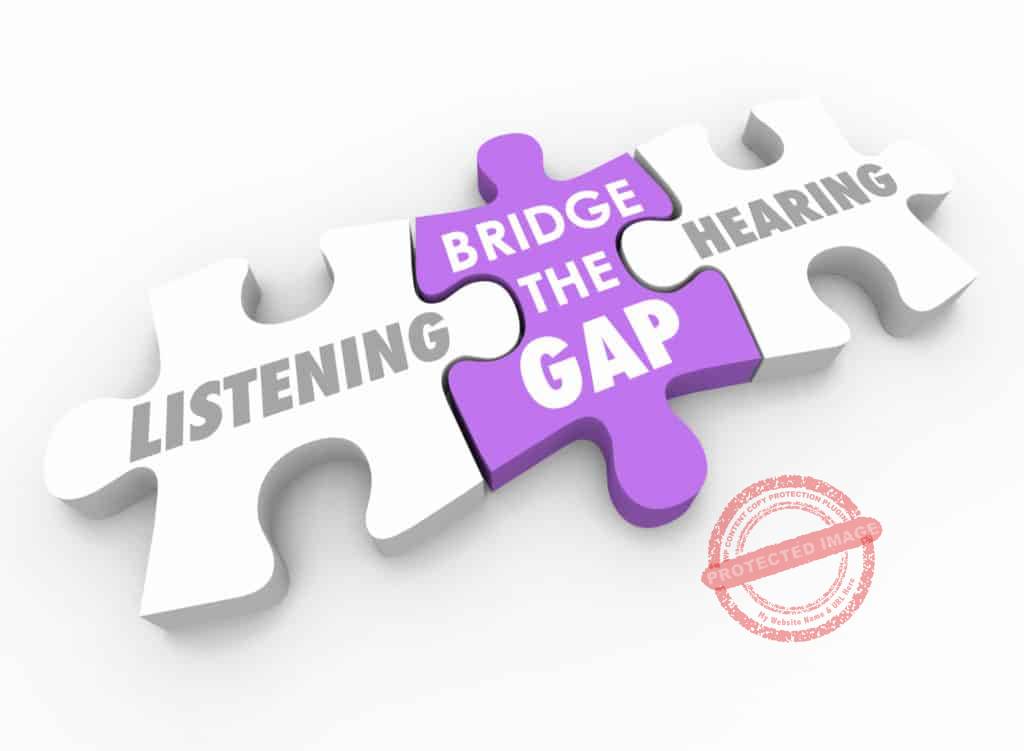
You can get a lot of information from non-verbal cues.
Pay attention to the measure and tone of the other person’s voice.
Notice if there is laughter or rhythm in his voice.
Look at the set of his mouth and the expression around his eyes.
Take note of the slope of his shoulders.
These non-verbal signs may indicate joy, anger, boredom, defeat, or some other emotions.
Active listening is not only about hearing the words. It is listening to any message, including non-verbal ones, that the other person is communicating.
Checklist For Active Listening
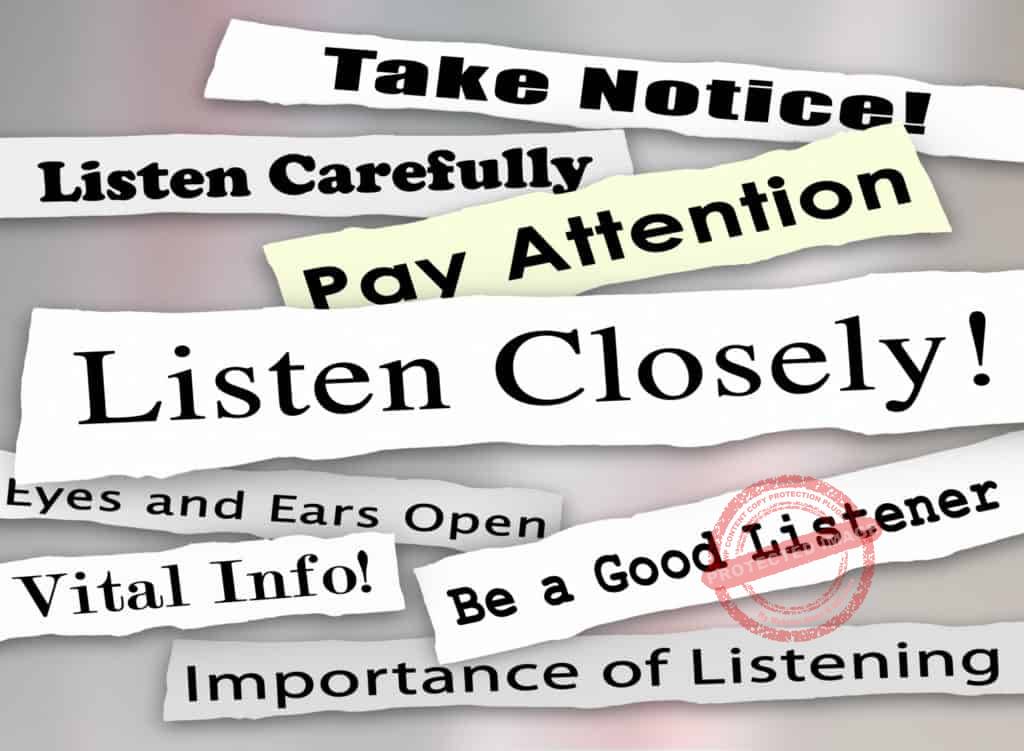
You can assess how successful you are at improving active listening skills by asking yourself several questions.
- Were you able to focus on the other person by hushing the chatter in your mind?
- Did you listen to the other person without interrupting him?
- Could you see things from his perspective?
- Were you able to show interest in what he was saying?
- Did you notice non-verbal cues, read between the lines, and understand implied meanings?
- Were you able to keep from making judgmental or disapproving comments?
- Could you paraphrase what the other person was saying to confirm if you understood him correctly?
- When you had to respond, were you abler to convey your thoughts clearly?
- Were you able to show empathy?
- Did you give honest feedback?
- Were you able to show respect for the other person’s point of view, even when you did not agree with it?
Conclusion
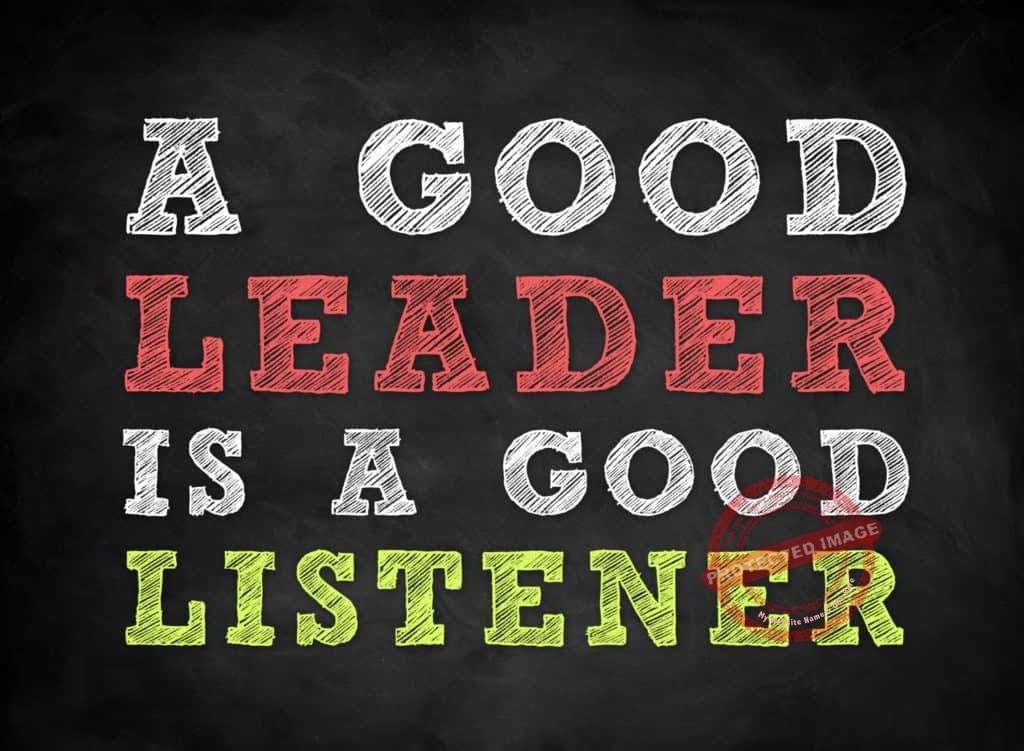
You can’t become a good guide or leader without acquiring interpersonal communication skills which include learning to listen effectively.
Unlike plain hearing, active listening does not simply happen. It is an active and conscious process.
You need to have a committed decision to focus, listen to, and understand the other person.
It requires energy, patience, and practice.
On the other hand, active listening allows you to become a leader of great influence.
Also, it allows you to understand your people’s perspectives and priorities.
It gives you insight into their thoughts and feelings.
Allows you to earn your people’s trust and confidence as well as build you up as a credible, compassionate, and effective leader.
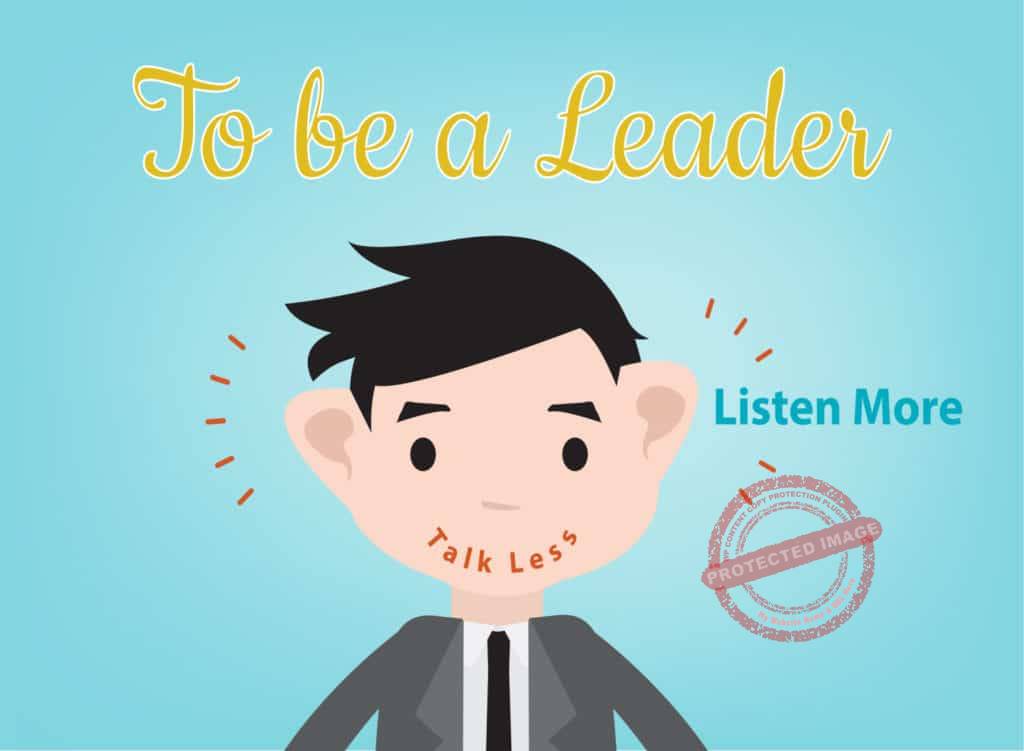
Your ability to lead is essential to the success of your organization.
If you want to build credibility, strengthen teamwork, inspire dedication, and elevate the engagement and commitment of your people, you can’t ignore the importance of listening and the value of effective communication.
You have to learn how to listen effectively.
It is one of the most powerful tools you can have as a leader.
Have you tried listening actively to your employees?
Let us know!
Click on Buy Now For a PDF Version of This Blog Post
 |
